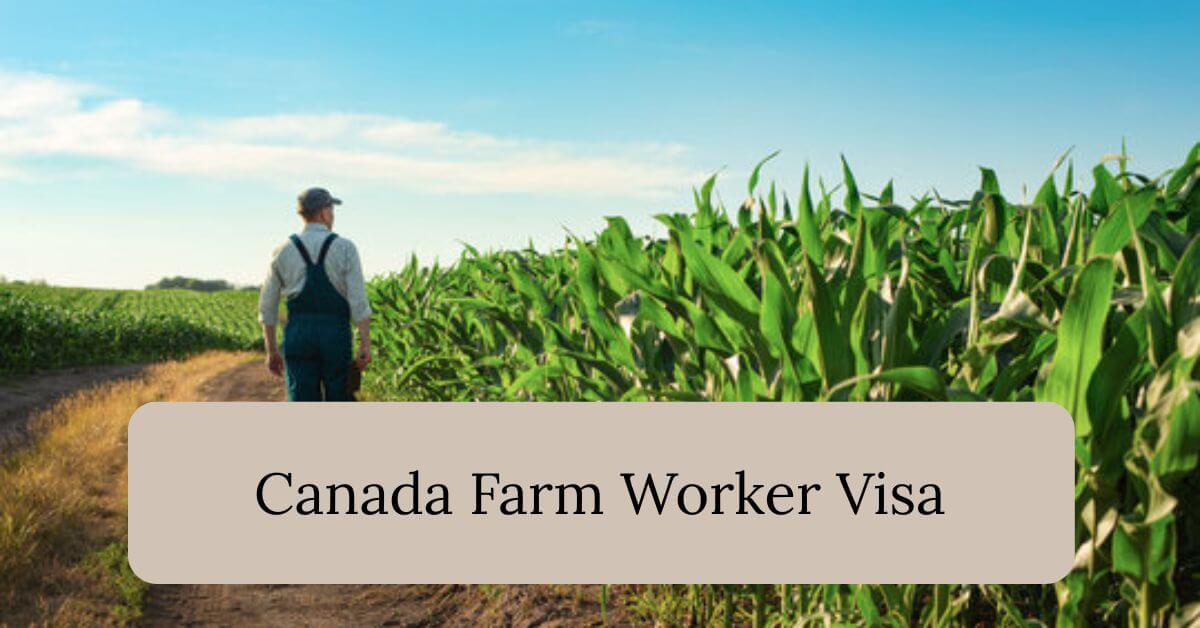Canada’s farming business is very big. From fruit trees to dairy farms and everything in between. Because this business is so important to the economy, not having enough workers can cause problems. People are needed to make sure that Canadian shopping stores always have food.
Because the country needs a lot of farmers, there are lots of jobs available for farm workers. Those of you who have always wanted to work in a country area of Canada might find this the perfect chance. Let’s talk about how to get a farm worker’s visa in Canada in more depth below.
Becoming a Farm Worker in Canada:
Agriculture industry is a very important part of Canada’s economy. Another thing about this industry is that it lets a lot of temporary foreign workers in. If a TFW does a good job for their company, they might even be able to become a permanent resident.
A lot of farms in Canada hire people who are just starting. You will need to meet certain conditions in order to get a work pass. But you don’t need a lot of training, licenses, or schooling to do the job.
In fact, a lot of companies in Canada’s agriculture sector will train their workers on the job. Would you like to work on a farm in Canada? Here are the main steps you need to take to start this job path.
- Step 1: First, look for work online and send your resume to farms in Canada.
- Step 2: Accept a job offer from a company.
- Step 3: The company will get an analysis of the effects on the job market.
- Fourth step: Get a work visa from the Canadian Government.
- Step 5: Pay any fees that are due and wait for approval.
- Step 6: Welcome to Canada! You can now start working for your approved company.
Check More: Labour Market Impact Assessment (LMIA) Canada
Canada Farm Worker Visa:
Seasonal Agricultural Worker Program (SAWP)
To get a farm worker visa in 2026, TFWs can do one of two things. People from certain countries can apply for the Seasonal Agricultural Worker Program. You could also apply for a work permit that is specific to your company. The second choice is better for TFWs who want to apply for PR in the future.
First, let’s talk about the SAWP. People from Mexico and the Caribbean can apply for this scheme. A lot of farms in Canada only hire people during certain times of the year, when the weather is good for farming. People from their own country who are accepted for this program can work for the seasonal employer for up to eight months.
There are rules about the SAWP that say the company has to provide housing and transportation for the TFWs. You won’t have to worry about where you’ll stay or how you’ll get there when you get to Canada.
Employer-specific Work Permit
The employer-specific work pass is the other choice. With this permit, citizens can come to Canada briefly to work for a certain company. In order to get this permit, the company will need to fill out an LMIA and show that hiring someone from another country won’t take away work from an American worker.
After getting that, the TFW can send in their application materials and pay the $155 CAD filing fee. The TFW will be able to work in Canada for a certain amount of time, usually one to two years, with this permission.
But there is a catch that makes this worth it. Someone from outside of Canada can apply for permanent residency after working for a Canadian company for at least one year. You can also ask to have the work permit extended if there is a delay between when your employer-specific work permit expires and when your application for permanent residence is approved.
Basic Requirements:
People who want to work on farms in Canada must meet a few basic standards.
- Education: Most companies want at least a high school diploma or the equivalent. You also need to be physically fit and be able to do the same things over and over again in different kinds of weather.
- Experience: You don’t always need formal training to get a job, but if you have relevant experience in farming, harvesting, or running machinery, it can help your chances.
- Language Skills: Being able to talk to people in English or French is often necessary for safety and teamwork.
- LMIA: If you are applying from outside of Canada, you might need a valid job offer and a work permit. Depending on the program or company, you might also need to go through an LMIA (Labour Market Impact Assessment).
Working on a Canadian Farm:
Have you ever thought about what kinds of jobs are offered on a farm in Canada? There are a lot of chances all over the country. Fruit and vegetable farms, dairy and chicken farms, and grain and oil seed farms are some of the most popular types of farms. Among the different jobs are:
- Planting seeds
- Harvesting crops
- Tending livestock
- Greenhouse prep and maintenance
- Operating machinery
- Keep the farm clean and safe
It can be very profitable to work in gardening in Canada. The economy stays stable because of people who work on farms.
Frequently Asked Questions:
-
What is a Canada Farm Worker Visa?
It is a temporary work permit that allows foreign workers to work on Canadian farms for a specific period.
-
Do Canada Farm Worker Visas offer free accommodation?
Many employers provide free or subsidized accommodation for farmworkers during their employment.
-
Is previous farming experience required for a Canada Farm Worker Visa?
Not always; some farmworker positions provide on-the-job training for beginners.






